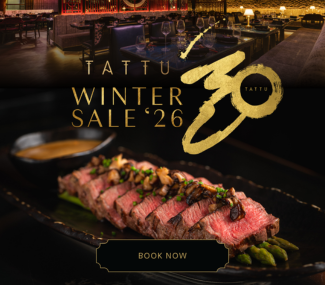Corporate gifts were once a checklist item. Branded mugs, generic hampers, uninspired gift cards – they did the job, and no one expected more. But times have changed. In an era where emotional intelligence, storytelling, and values-led branding are front and centre, gifting has become something far more potent: a quiet but powerful tool of connection.
The rise of gourmet gifting marks a shift in how businesses show appreciation. No longer transactional or cookie-cutter, these gifts are thoughtfully chosen and carefully curated, blending sensory pleasure with emotional resonance. Because let’s face it – taste lingers. And when done well, a gift can say more than a thousand email follow-ups.
In this piece, we’ll unpack how food-led gifting is reshaping client relationships, explore the role of emotional intelligence in modern gift-giving, and guide you through building a strategic gifting approach that goes beyond the expected. It’s about less landfill, more meaning – and connection that actually counts.
Why Generic Gifting Is Dead
Today’s business landscape is saturated with noise. Every brand is vying for attention. Every touchpoint is a chance to build (or break) connection. So when a business sends out forgettable, mass-produced merchandise, it doesn’t just miss the mark – it sends the wrong message.
According to a report by Shared Secrets Lab, a jaw-dropping 79% of corporate gifts and branded swag end up in landfill. Food gifts don’t – we can guarantee you that! Sticking to mass-printed merch is not just wasteful – it’s a lost opportunity. One that could have been used to foster real loyalty or spark a meaningful conversation.


Modern recipients expect more – curated corporate hampers or something that expresses your brand values in a personalised way. They’re values-driven, eco-conscious, and emotionally intelligent. They don’t want clutter. They want to feel seen. A thoughtful gift says: You matter. We took the time. A generic one says: You were on the mailing list.
And as sustainability becomes non-negotiable, food-led gifting emerges as a frontrunner. It’s perishable in the best way: memorable, enjoyable, and meaningful in the moment, without adding to the long-term clutter. According to research carried out by McKinsey, 35% of businesses now prefer to gift consumable items like food or drinks, moving away from the tacky mass-printed “brand swag.”
The Rise of Emotionally Intelligent Gifting
We talk a lot about KPIs and conversions. But business is still about people. Behind every deal is a human being who wants to feel valued. That’s where emotional intelligence comes in – and it’s redefining the art of gifting.
Emotional intelligence in gifting means knowing your audience on a deeper level. It’s the difference between sending everyone the same standard gift basket and tailoring something specific: a box of premium herbal teas for the wellness-focused client, or a set of indulgent chocolate truffles for the team that just pulled off a major launch.


It also communicates something subtle but powerful: We notice. We care.
This is more than niceness. This is strategy. A personalised, well-timed gift builds trust, strengthens rapport, and positions your brand as thoughtful, detail-oriented, and emotionally attuned.
Taste Leaves a Lasting Impression
Unlike most branded merch, food engages the senses. It activates memory. It anchors emotion. A beautifully curated box of artisan cheeses or small-batch jams can leave a longer-lasting impression than any water bottle with a logo.
There’s also a scientific edge to this. Research into multi-sensory marketing shows that experiences involving taste, smell, and texture are more memorable and more emotionally charged than those that are purely visual or verbal. When a client associates your brand with that moment of sensory delight? That’s powerful. And it goes further than client relationships – team building is another area where thoughtful gestures can foster allegiance and a better work environment.
And it’s not just about the moment of unboxing. Food gifts are often shared – with family, friends, or colleagues. That creates a ripple effect: more eyes on your brand, more stories told, and a sense of goodwill that extends far beyond the original recipient.
What Gourmet Gifts Say About Your Brand
Every gift is a story. What do you want yours to say?
A gourmet gift isn’t just a luxury – it’s a medium. One that can reflect your values, aesthetic, and care. It can show that you support small businesses, favour sustainability, value quality over quantity, or believe in indulgence as a form of celebration.
Think locally sourced honey, hand-roasted coffee beans, or a minimalist arrangement of vegan snacks – all carefully selected to align with your message.


You could even take it further: pair a food gift with a narrative. Maybe it’s a handwritten note explaining why each item was chosen. Maybe it’s a card linking the recipient to the makers behind the product. These touches don’t just elevate the experience – they humanise your brand.
And it works internally, too. Acknowledging employees with thoughtful gifts – especially around birthdays, milestones, or after tough projects – fosters culture, boosts morale, and makes people feel genuinely appreciated.
Strategic Gifting in Action
Let’s say your company just closed a huge deal. You want to thank the clients involved. You could send a generic thank-you email – or you could send a curated gift that tells them: We notice your taste, we honour your time, and we’re celebrating this win with you.
The strategic outcomes of good gifting include:
- Retention: Clients who feel valued are more likely to stick around.
- Referrals: Thoughtful gifts become stories. Stories get shared.
- Perception: Elevating the quality of your gifts elevates the perception of your brand.
- Culture: Internally, gifting can solidify company culture and reinforce your values.
Done right, gifting becomes a feedback loop of appreciation and affinity.
Building a Gifting Strategy with Depth
Want to elevate your own gifting game? Here’s how to begin:
- Know Your Client: Go beyond job titles. What do they value? What would feel personal?
- Be Sensory: Incorporate touch, taste, scent, and sight. The more senses you activate, the more memorable the gift.
- Prioritise Presentation: Luxe packaging, brand-consistent colours, and elegant wrapping matter.
- Time It Right: Gifting isn’t just for holidays. Milestones, contract renewals, or “just because” moments can feel even more meaningful.
- Make It Shareable: Gifts that feel photo-worthy will often end up on social media – an added brand boost.
Connection Over Clutter
Forget landfill-bound mugs and forgettable trinkets. We’re in a new era – one where businesses are realising that gifting can do more than just check a box. It can forge relationships. Spark joy. Leave a trace of your brand that lingers long after the last bite.
Gourmet gifting isn’t about extravagance. It’s about intention. When we choose to gift with care, we’re not just sending products – we’re sending a message.
And in today’s business world, that message matters more than ever.
Images courtesy of unsplash.com and pexels.com











